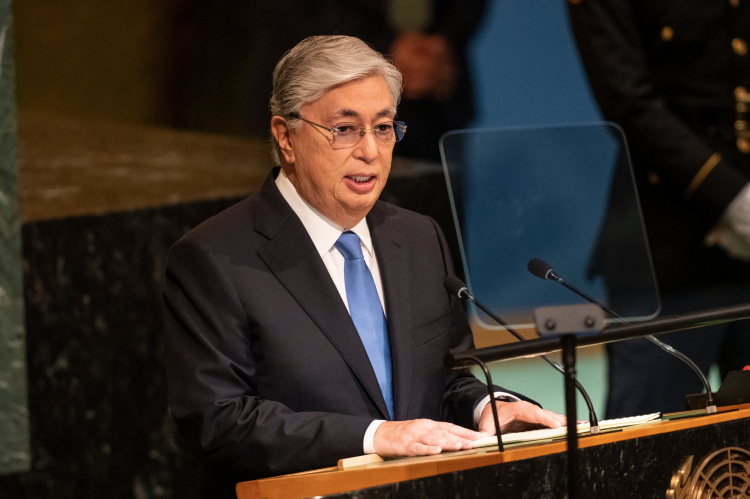Kazakhstan Seeks to Reduce Dependence on Caspian Pipeline Using Alternative Export Routes

Kazakhstan president Kassym-Jomart Tokayev has called for the establishment of alternative routes for the country’s oil exports to reduce its dependence on Russia. According to a news report published by Upstream, President Tokayev made the remarks following a string of restrictions the country faced this year on its major export pipeline running through southern Russia to the Russian Black Sea coast operated by the Caspian Pipeline Consortium.
Tokayev also promised support for private investors and state-owned companies in the upgrading of Aktau and Kuryk’s tanker-loading facilities during his visits to the Mangystau and Atyrau regions earlier this month.
Additionally, the president promised to build more shuttle tankers to ship Kazakh’s export cargo across the Caspian Sea.
The upgrade of Kazakhstan ports and increasing the number of shuttle tankers in the Caspian Sea is aimed at shipping approximately 150 million barrels per year of Kazakhstan oil across the Caspian Sea to Azerbaijan. The oil will then get into the existing pipeline network, from where it can be supplied to Turkey and international markets.
While the proposal to give Aktau and Kuryk a critical role in the country’s oil exports, such promises are not new. But investments have never materialized since the Caspian pipeline has remained to be more economically attractive for oil exports.
Storage Initiative
During a visit to the oil province of Atyrau, where the Caspian pipeline begins its route stretching eastwards, Tokayev urged a state-run company KazMunaygaz as well as other private oil producers to explore the viability of constructing onshore oil storage facilities to handle shipments at an alternative location.
Currently, the main shippers of oil through the Caspian pipeline to European markets and other international destinations include two foreign-led oilfield developments, Tengiz and Kashagan, and a foreign-managed producer in Karachaganak.
Analysts argue that the storage proposal will require legislative changes, including easing some direct levies on oil output to motivate producers to store their oil instead of sending it to the market soon after production.
Last week, Kazakh’s domestic oil production increased by 11%, reaching more than 2 million barrels per day on Monday. According to the Kazakhstan Ministry of Energy, the rebound in oil production is attributed to high production by Kashagan and Tengiz. However, the Caspian pipeline is still transporting oil below its capacity of about 1.2 to 1.4 million barrels per day.
Since September, the capacity of the key pipeline has been restricted to 800,000 bpd due to the ongoing repairs of two out of the three offshore tanker loading buoys.

